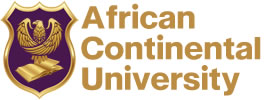| COURSE CODE | COURSE TITLE | T | P | C |
| STM 101 | Introduction to Tourism | 2 | 1 | 2 |
|
STM 103
|
Regional Tourism Destinations of Ghana | 2 | 1 | 2 |
|
STM 105
|
Introduction To Environmental Ecology I | 2 | 1 | 2 |
|
STM 107
|
Information and Communication Technologies (ICTs) for Tourism I | 2 | 1 | 2 |
|
STM 109
|
Communication Skills I | 2 | 1 | 2 |
|
STM 111
|
French for Communication Purposes I | 2 | 1 | 2 |
|
STM 113
|
Statistical Methods I | 2 | 1 | 2 |
| STM 115 | Elements of Economics I | 2 | 1 | 2 |
| Total | 16 | 8 | 16 |
STM 101: Introduction to Tourism (T2 P1 C2)
This course introduces undergraduates to tourism studies and explores the definitional and conceptual dynamics of the subjects. A critical distinction and analysis is made of the various definitions and themes embedded in tourism studies. The concept of Leisure, Recreation, and Tourism are examined in time and space. Students will visit attractions on the University campus and write a report on it as part of their practical work.
STM 103: Regional Tourism Destinations of Ghana (T2 P1 C2)
The course will introduce students to the physical characteristics and human activities in Ghana. The course enables students to have a good knowledge of Ghana. Some of the issues that will be address include; the physical features of Ghana, such as the relief, climate, vegetation and drainage systems. Students will also be introduced to the rainfall patterns, population distribution, settlement patterns, transportation development and some of the socio-economic activities in Ghana.
STM 105 Introduction To Environmental Ecology I (T2 P1 C2)
This course will explain the basic principles of ecology and ecosystem essentials and how energy and matter are circulated within typical ecosystem. It will further examine global and national concerns on the problem of environmental degradation and pollution, from the ecological perspective. Causes of environmental degradation and solutions for restoring ecological integrity will be examined. Field studies are essential in this course.
STM 107: Information and Communication Technologies (ICTs) for Tourism I (T2 P2 C3)
The hospitality, travel and tourism industries are affected by changes that are being brought about by ongoing developments in the information and Communications technologies (ITCs). This course presents an explanation of the significance and role of ICTs in the modern hospitality, leisure and tourism industries. Specific topics treated include an explanation of the significance and role of ICTs in the modern hospitality, leisure and tourism industries. Specific topics treated include Detailed understanding of the main of the main application ICT in different travel and tourism sectors; examination of the main characteristics of the tourism industry structure within which new and existing technologies operate; the growing use of ICT by Public Tourism Organizations such as National tourism Organizations (NTOs) and Tourism Information Centers (TICs); Global Distribution Systems (GDS) namely Sabre, Galileo, Amadeus, World span and Abacus. Laboratory work to develop proficiency is an integral part of this course.
STM 109: Communication Skills I (T2 P1 C2)
This course is meant to equip all freshmen offered first degree programmes in the University with the knowledge of English grammar to enable them communication effectively in both oral and written media. It is envisaged that by the end of this course, students would have attained an appreciable proficiency in the use of English. The course content, in view of that, comprises the study of the parts of speech – the noun, verb, pronoun, adjective, adverb, and so forth. The proper use of the articles are also taught, the study of the sentence ultimately leads to paragraph writing.
STM 111: French for Communication Purposes I (T2 P0 C1)
The course is designed to acquaint students with the language pertinent to the area of tourism. They are specially tailored for students who have no knowledge in French. The course helps students to grasp the basic French vocabulary and expressions to be able to function in everyday situations. The first semester would focus on the language of hotels, restaurants, entertainment spots, travelling facilities, exchange rates etc. the communicative approach is used to enable students express themselves in different situations. French is the sole medium of instruction.
STM 113: Statistical Methods I (T2 P1 C2)
Students will be taken through a general introduction to the nature and use of Statistics; Methods of Data Reduction; Descriptive Statistical Analysis of Frequency Data; Calculation of Measures of Central tendency and Dispersion; Random Experiments; Sample space and Events; Elements of Combinatorial analysis and the Laws of Probability, Conditional Probability and Statistical Independence.
STM 115: Elements of Economics I (T2 P1 C2)
The course offers students the opportunity to be introduced to economics including definition, nature, and scope of the subject matter. Basic micro economic principles of demand and supply; market equilibrium and disequilibrium conditions are analyzed. Demand and supply elasticities; measurement and interpretations of elasticities. The consumer demand theory; law of diminishing marginal utility; the budget line; equilibrium of the consumer. The theories of production, cost, marginal productivity, and the firm, as well as the equilibrium of the firm. The theory of (resource) distribution and the basic analysis of market structures.

